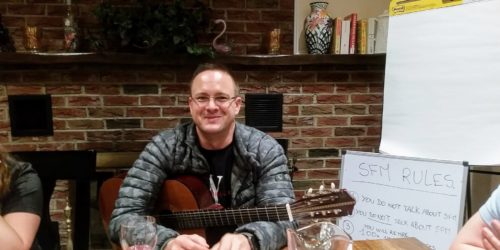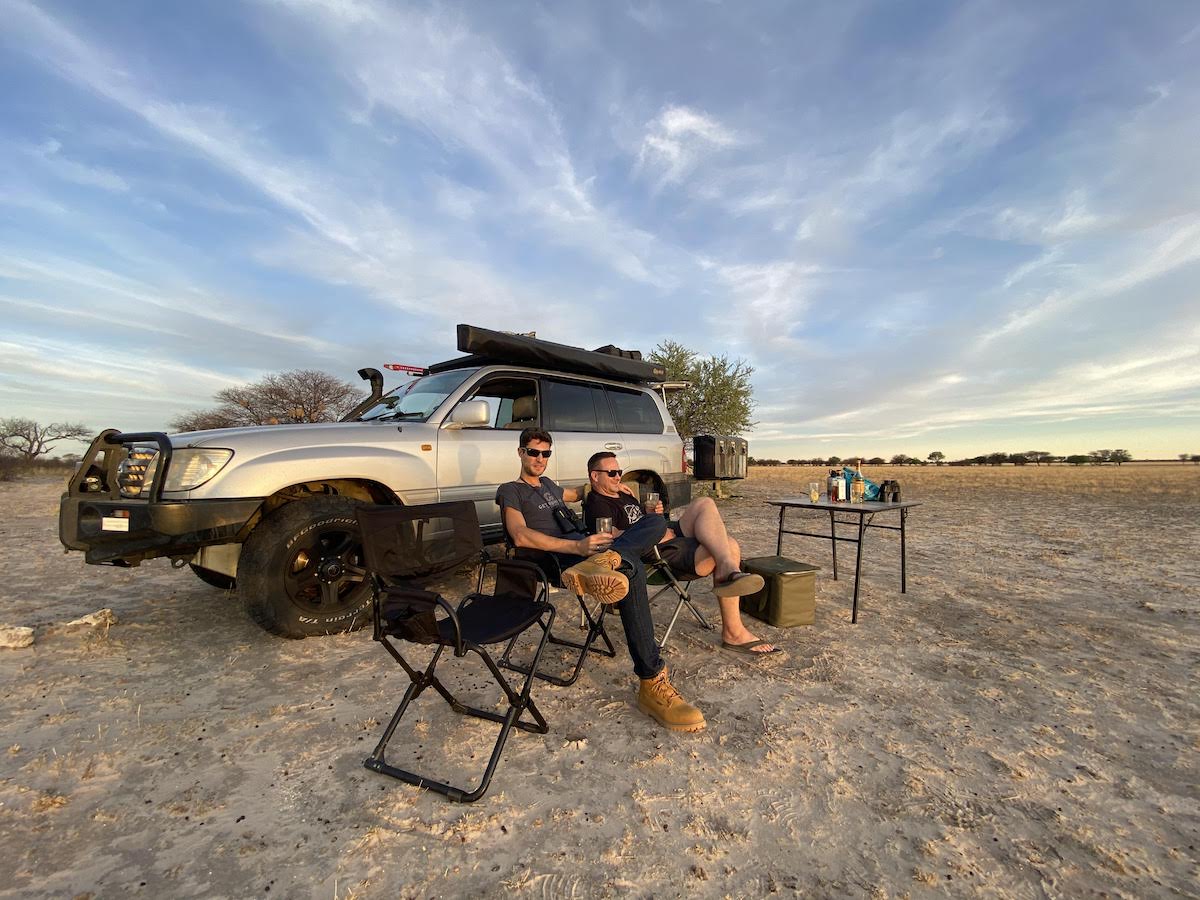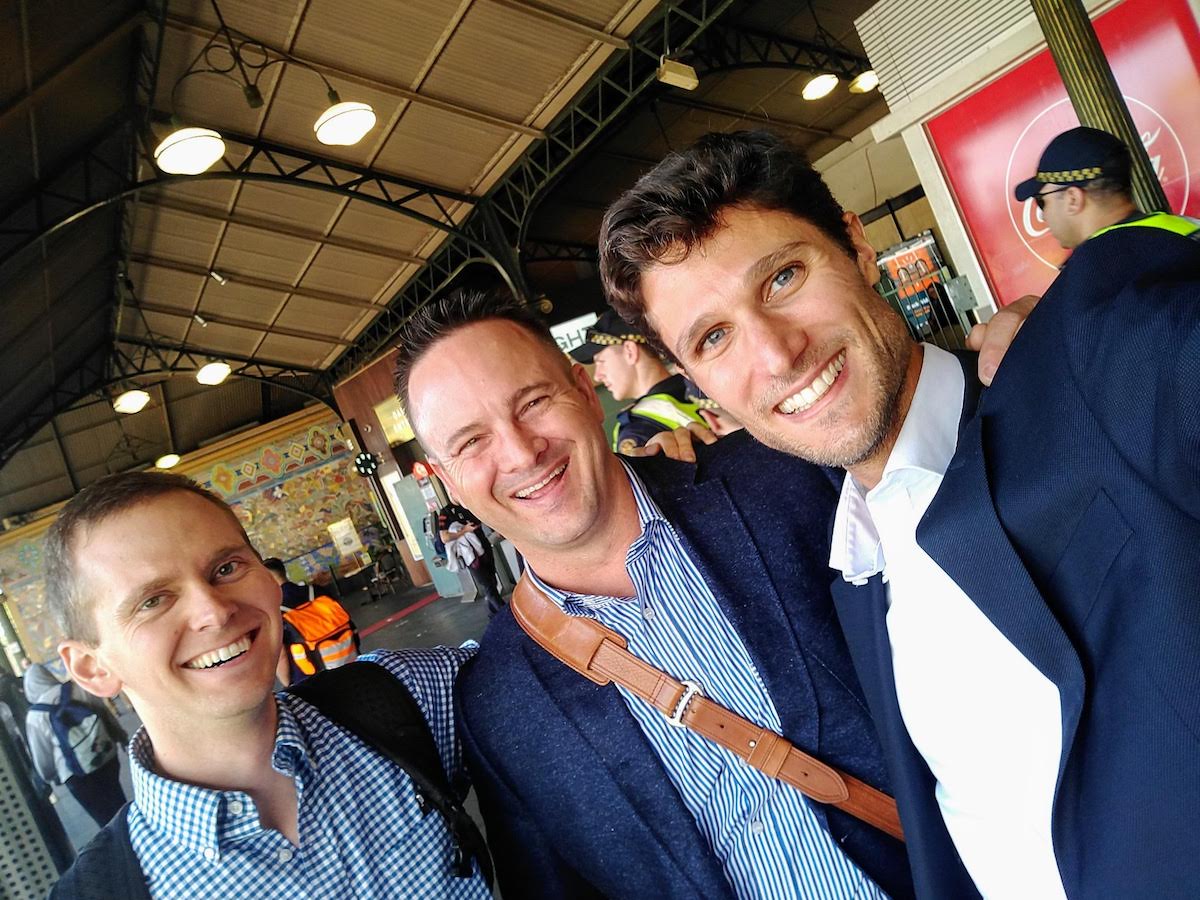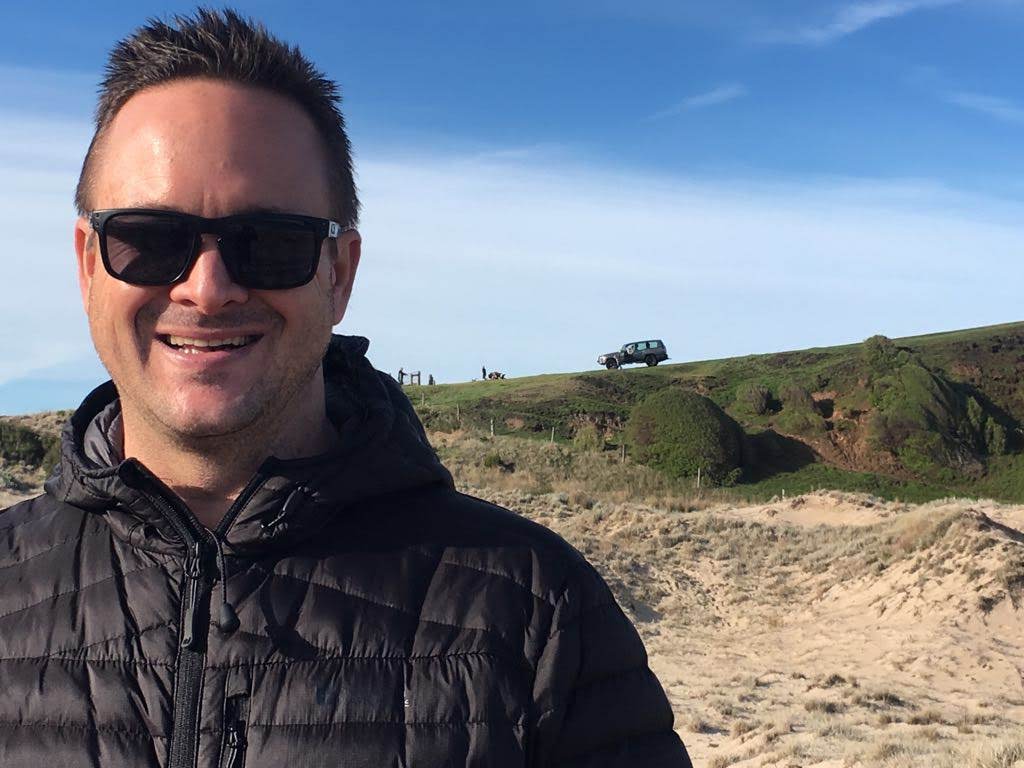
Remembering Alastaire Dick
Our friend and colleague Alastaire Dick passed away on July 19 from complications related to COVID. Al was a great friend to many of us at RMI, and a man who will be remembered for his humility, clear moral sense, generosity of spirit, sense of humor, and commitment to his work. He is survived by his wife and two children.
Al was born and raised on a farm in South Africa’s Eastern Cape. He grew up speaking Xhosa, an African language, and had a lifelong connection to the land and culture of South Africa. After a distinguished academic career and time spent working for South African utility Eskom, Al joined RMI to work on the Sunshine for Mines project. This work was not just a job to him, but a calling, and he found much of his life’s purpose in moving mining toward a sustainable future.
And he lived his values. He moved from Johannesburg to George, where he converted his home to be more sustainable and self-sufficient, complete with rainwater collection, an efficient wood stove, and other measures. At the time of his death he and his family were in the process of getting solar photovoltaics for their roof. Al also had plans to build an even more sustainable and resilient home near the coast and spent much time planning how to best do this.
Alastaire was also deeply concerned over issues of racial justice and the plight of the poor in South Africa, convictions that were rooted in his Christian faith and experience living through the Apartheid era. In order to affect meaningful empowerment for his fellow South Africans, he helped found a Christian men’s business club, under the logic that teaching and sharing business skills could lead to true and lasting economic and social empowerment.
It was not only the people of South Africa but also the land that moved Alastaire. He was an avid outdoorsman, taking his family and sometimes friends for weeks at a time into the bush in a Land Cruiser that he decked out to be a self-sufficient and highly organized base camp. And he came out of the bush with stories that brought Africa and its wildlife to life for his overseas friends and their children.
Al is remembered by many at RMI in these moments sitting around a campfire or living room, playing songs on the guitar that he had written in Xhosa, and regaling his companions. It was at these times that Alastaire’s boundless energy, optimism, and love of life shone the brightest.
Alastaire will be missed, but his work, his impact on the lives of others, and his light live on.
—
“Alastaire was someone who taught me more on a personal level than on a professional level. Ironically, as we worked together, we weren’t supposed to be friends. He taught me to look at everything that comes toward you in a positive light, to care about the people who are around you despite what they may or may not have to give you. To connect on a human level even more than a professional level.
Everywhere he went, he had a professional contact who was also a friend. Suddenly we were going into homes, to the most remote places. It’s an important teaching, as we tend to be invited to think of our professional life as something that is pretty dry and transactional. That way you can have a good time as you work as well. Most importantly, you have a meaningful time.
We were so expecting to go back to see Al in Africa. It’s incredible that the guy who brought us into those adventures in the desert is no more. It’s a connection that is missing.”
- Paolo Natali

“Al was truly a joy to work with. He was very committed to his work. Everything I know about mining I know because Al taught me. But most of my interaction with Al wasn’t even about mining.
He always seemed really present and was genuinely happy to be around everybody in the room. Whether he had known you for years and was excited to see you again or whether he had just met you. We’d always end up on these early morning calls with him, and even though I’m not a morning person he always had a way to make me smile. That smile and the hugs that he gave, that’s what I’ll miss most.
Al was very dedicated to both the work and his family, and I know from experience that isn’t easy.
The story is that Al was born under a tree in the bush on the way to the hospital. Since the day he was born, he was very connected with nature and human impact on the environment. He wanted to protect what he loved and leave the planet and the environment for his kids so that they could enjoy it the way that he has.
It sounds cliché, but Al really was one of the best among us.”
- Jessie Lund
“Al had this very interesting life story. He was working a job where by all accounts he was quite stressed and living a very unhealthy lifestyle. And he made a conscious choice to step back from a high-paying, high-status job and to prioritize his family. He left a big house in Johannesburg and all the trappings to have a more meaningful life. I respect people who make that decision, knowing how hard the allure of money can be. It can be hard to take that step and say “OK, what is actually going to make me happy in life?”
I am a strong atheist, and he was a strong religious person. We would have intense discussions. We would look at an African sunset, and he would say “how can you not believe in the glory of God?” The thing I found most interesting is that I am very happy and content with my worldview and beliefs, and Al was very content with his.
Al kept coming back to the question of “How do we change the world?” He had an absolute belief that the transition away from fossil fuels to clean energy is happening, that it is possible, and that we have an important role in it. He made the work feel special.”
- TJ Kirk

“Most of your professional colleagues are just colleagues, but Al was a friend to the whole family. When we got to know Al, we had just moved to the US from Europe with the family, and didn’t have an extended social network. I remember how he just came in, parked himself in a corner with the kids and my guitar.
He dropped the agenda to be in the moment every day. He was a role model to make the most out of in-person meetings. Of course we can go through a PowerPoint, but the really important thing is to connect, and to change hearts and minds. The rest you can do offline. Some people come into meetings, and they have something specific to get out of it. He came into a situation and with the mindset that “we are both here, let’s make sure we enjoy it, let’s make sure it is productive, and that we don’t get stuck on the details.”
My whole family always looked forward weeks in advance to when Al was coming over. It was a highlight of the month event. Al coming over always triggered team dinners at our place. Not only because we had a visitor from abroad, but we all enjoyed hanging out with him. He set the stage for a really strong team.
Al and his family are in our thoughts, as I know we were in his, when we were going through hard times. Al will be sorely missed, as a team member and as a friend.”
- Thomas Koch Blank
“Al was so warm and so genuine. He made joy a priority and that was wonderful to be around. More than anyone else I know, he had such a good outlook on life and looked for the best in everyone and every situation. It was almost Zen-like, his ability to appreciate the moment and what was in front of him.
Al cared deeply about his work and didn’t hold back on anything. He led with his heart in everything that he did in life, and this was true of his work as well.
But when I think of Al, I think of him with a guitar in his hand, leading a sing-a-long. He made everybody feel like they were welcome, and they were his friend. It wasn’t an act, it was legitimate. And that is so rare to find. He was just a joyful, loving human being.
He could talk to anybody and make them feel like they were his best friend. It was not possible to not like Al. It was just not possible. If you didn’t like Al, you probably didn’t like yourself. He felt like we were all, as humans, part of the same family.”
- LeeAnn Baronett
“At one of our retreats we were cooking food. Al loved his barbecue, he wanted to put on a bit of a show. At some point, a tray caught fire in the oven. And everybody stood there, not quite sure what to do. He walked in from the back patio, grabbed a towel, put his hand into the flaming oven, pulled out a tray, and walked back into the backyard. While everyone else was still paralyzed.
I don’t know how you do that. There wasn’t a moment of thought, just action.
That was who he was, and how he approached his work. He knew what he wanted to do, what he had to do, and he did it. Never with bad intent. There was a problem and he went to fix it. He wasn’t wrapped up in the little stuff along the way. It was do because we have to act.
He was so unafraid. And when I say that I don’t mean in some kind of heroic, ridiculous archetype. He just lived the world. He was very present in the moment. Enjoying it. Savoring it.
He enjoyed a laugh. He enjoyed people. He always used to say that he got so much energy from being present with people on the team, that the virtual was hard. But more than that: he cared for people. Cared for strangers. People he didn’t know, people he’d never met. He wanted to help.
You don’t come across people like Al very often.”
- Patrick Molloy
